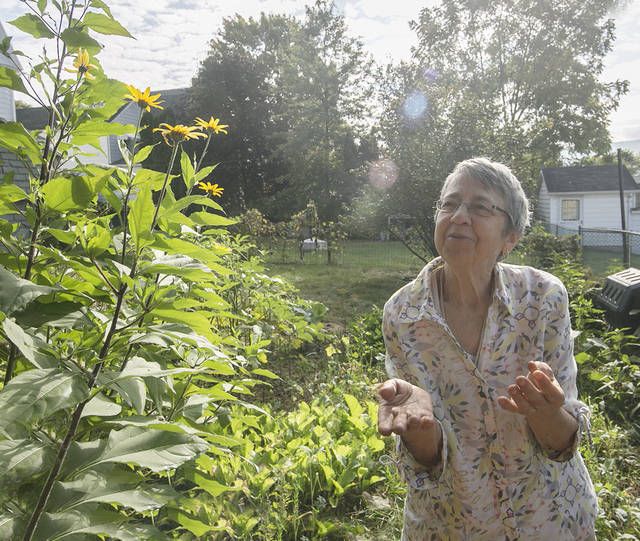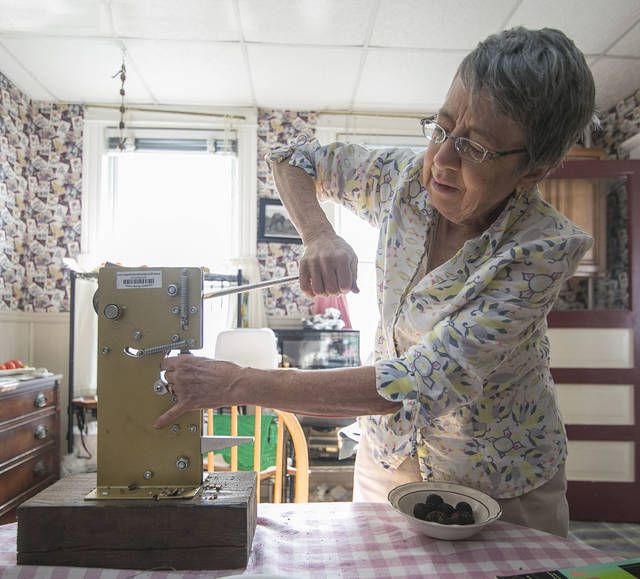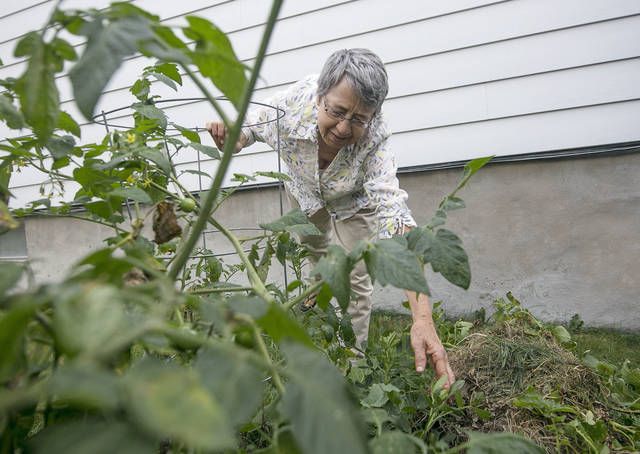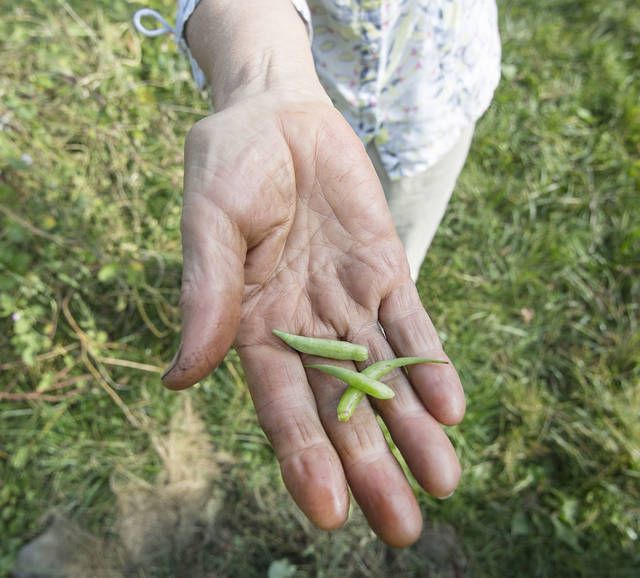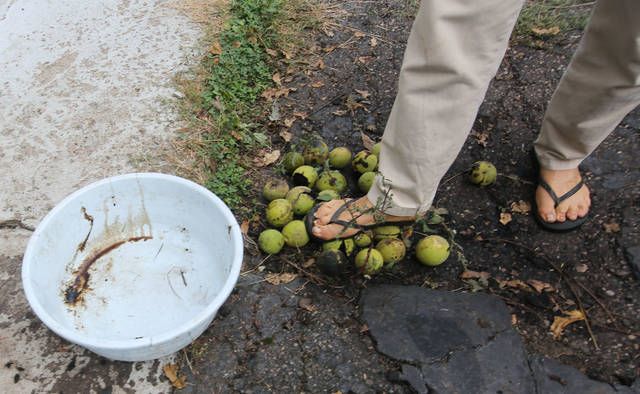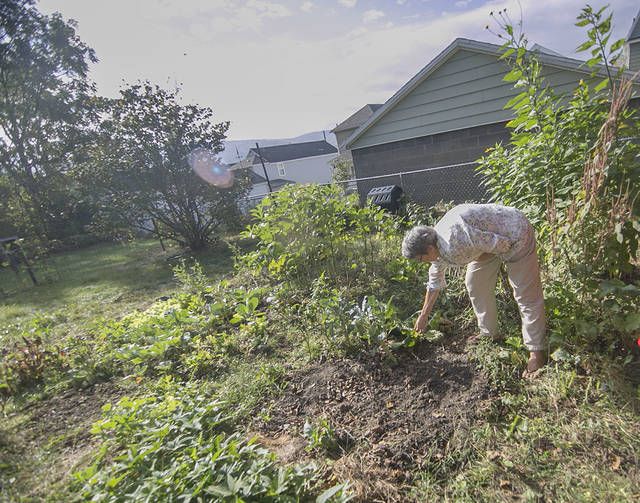Click here to subscribe today or Login.
WILKES-BARRE — Thud! Thud! Thud!
In the minutes it takes Therese Inverso to walk through her backyard garden, several black walnuts, encased in husks that make them look like so many green tennis balls, fall from her neighbor’s tree.
Inverso is delighted, because her neighbor is happy to share and Inverso is determined to use the harvest well.
It takes patience and often stains her hands brown, but Inverso intends to remove the husks from hundreds of nuts, scrub them and spread them out in her attic to “cure” for several weeks, just as she did last year.
“It’s laborious,” she said. “But the taste is so worth it.”
Inverso, 66, grew up in the Dallas area and has led an adventurous life since her 1972 graduation from then-College Misericordia, teaching music in places as far-flung as Iran and Jamaica. More recently she spent 20 years in New Jersey, but after her husband, Donald, passed away two years ago, she decided to return to Northeastern Pennsylvania.
“I’ve found people are friendlier here,” she said. “And they don’t have mountains in South Jersey.”
Settling into a house in Wilkes-Barre’s Rolling Mill Hill section, Inverso lives a waste-not, want-not kind of life. She has planted potatoes that other people were ready to throw into the garbage because they were sprouting — she hopes to harvest a potato crop soon — and she waters her garden with “gray water” that she already used for washing vegetables.
Vegetables, incidentally, are a mainstay of Inverso’s diet.
“Do you know what these are?” she says, pointing to plant after plant.
“Sweet potatoes.”
“Jerusalem artichoke.”
“Celery.”
While some of Inverso’s crops are an experiment of sorts — she’s planted peanuts and okra, knowing they usually thrive in Southern states — others, such as lima beans, are something she knew growing up.
Describing an assembly line of sorts on her family’s porch, she said one of her siblings would tackle the lima bean pod with a potato peeler and someone else would pull it open to reveal the beans.
Leading the way through her garden, Inverso points out many items that she’d eat in a salad, from the tangy leaf of the horseradish plant to the delicate lamb’s quarters — sometimes classified as a weed — to the colorful nasturtium flowers.
Then there are the veggies she likes to ferment. After a few weeks in a crock, her salted cabbage will become sauerkraut, and her salted turnips and red beets will combine to become a similar but more colorful dish called sauerüben.
Inverso grows herbs, too — parsley, sage, rosemary and thyme, plus catnip that a neighbor’s cat has discovered — and she bakes sourdough wheat and rye bread once a week.
Food has more flavor when it’s not overly processed, she said, pointing out how her homegrown celery, for example, is a deep green and has a more intense aroma than commercially grown celery, which is usually blanched.
Inverso likes to live off the land as much as possible, picking apples that have fallen from wild trees, cutting away any worm holes and making her own applesauce, without adding sugar.
She doesn’t eat much meat, she said, but she will eat it if, let’s say, a friend stops by and gives her a chicken.
“I’m not a vegetarian,” she said. “I’m an opportunist.”
She’s grateful that she can saunter through her unconventional garden and make a meal from so many items, everything from okra to mustard greens to begonias — yes, you can eat the flowers, she said. It helps her feel that she is living up to her name.
Inverso, who uses a French pronunciation for her first name, knows the origins of Therese, Theresa or Teresa stem back to a Greek word meaning harvester or reaper.
“Or gleaner,” she said with a smile.
